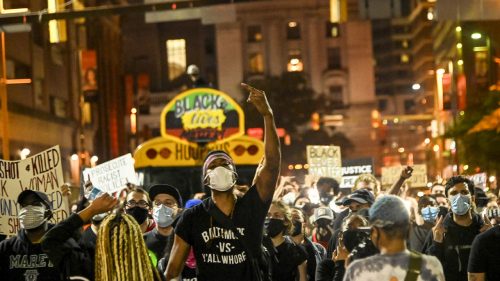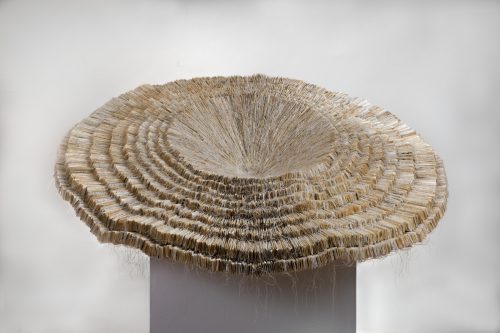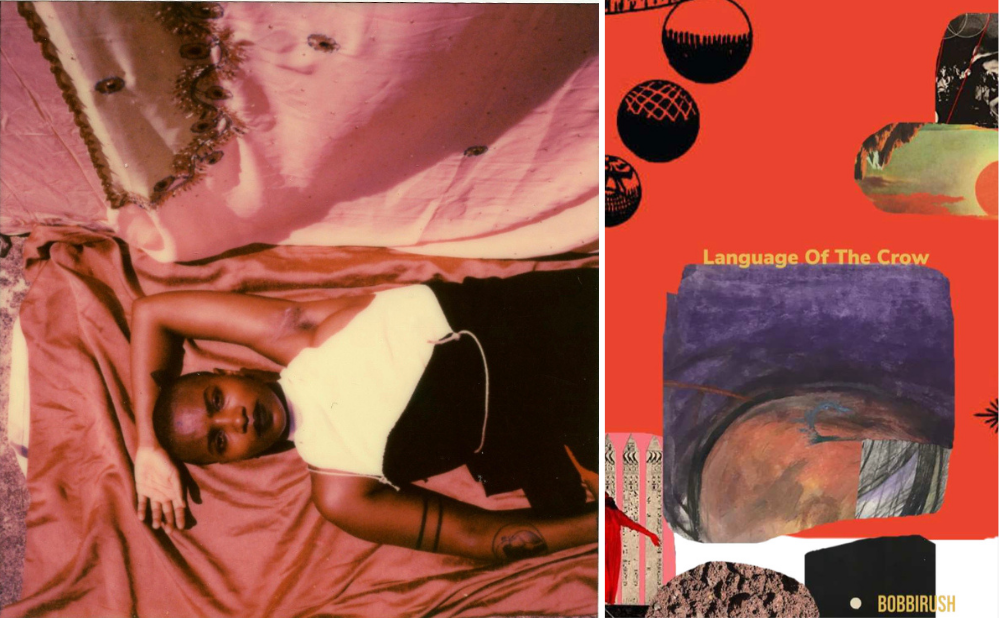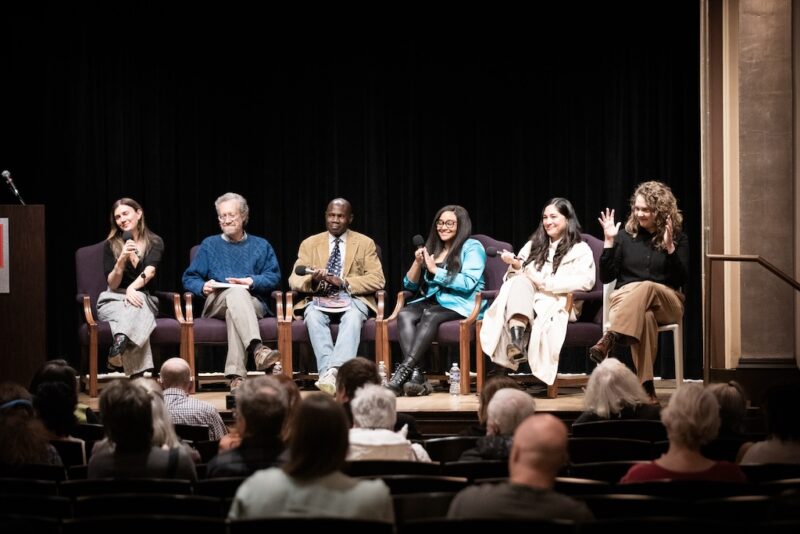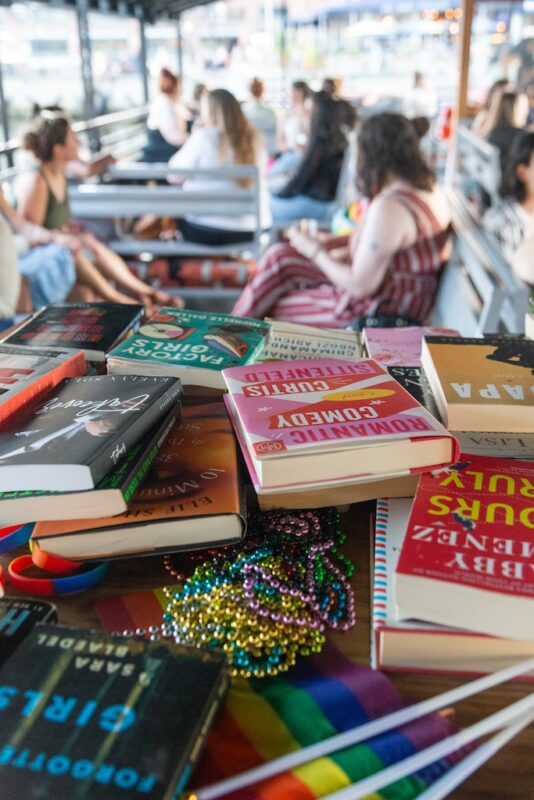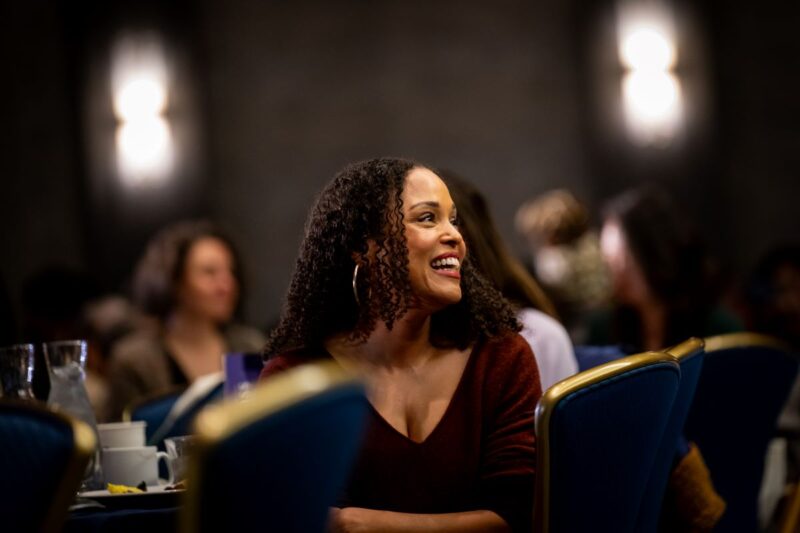The first presidential debate occurred last week. I texted one of my editors, Cara, “Are you going to watch?” And when she told me that one of the themes of the night was “race and violence,” I had to swallow my anxiety. Instead of watching the spectacle, I decided to practice radical self-care: I chose to step away from digital media and to read more of Bobbi Rush’s new book of poems, Language of The Crow. As I was reading, my friend Jenn messaged me that watching the debate made her feel like we are living in a simulation—a feeling that I’ve been consistently attempting to avoid. When I step away from the news and away from my screens, when I read written words and turn pages with my hands, I feel grounded and whole again.
I have been delighting, word by word, in Rush’s third book for a few months. I’ve been taking it slow, savoring the language and intention that the artist imparted upon each page. Rush’s words are a welcome respite from the constant barrage of psychically draining digital information. In a time where empires are seemingly falling and chaos reigns, Rush’s book filled me with a sense of stillness and purpose. The author’s ability to use language to invoke vivid imagery of ascension and depth, especially her use of repetition, added to the meditative quality of her work.

